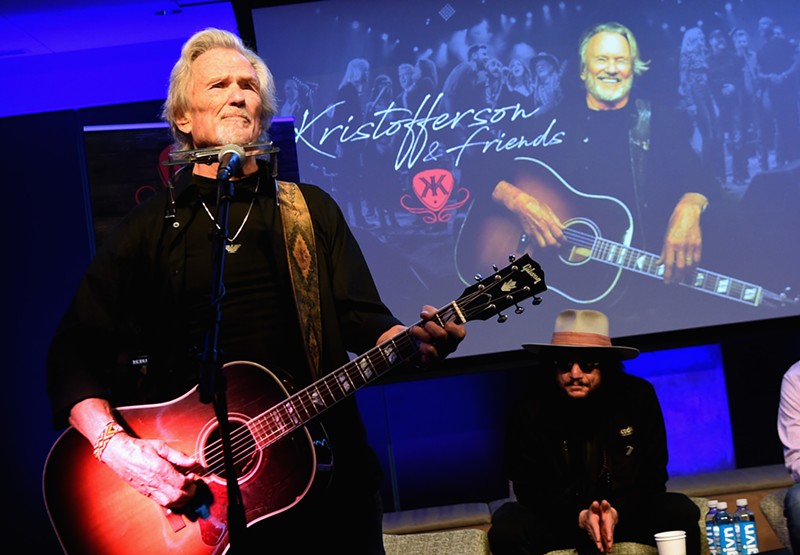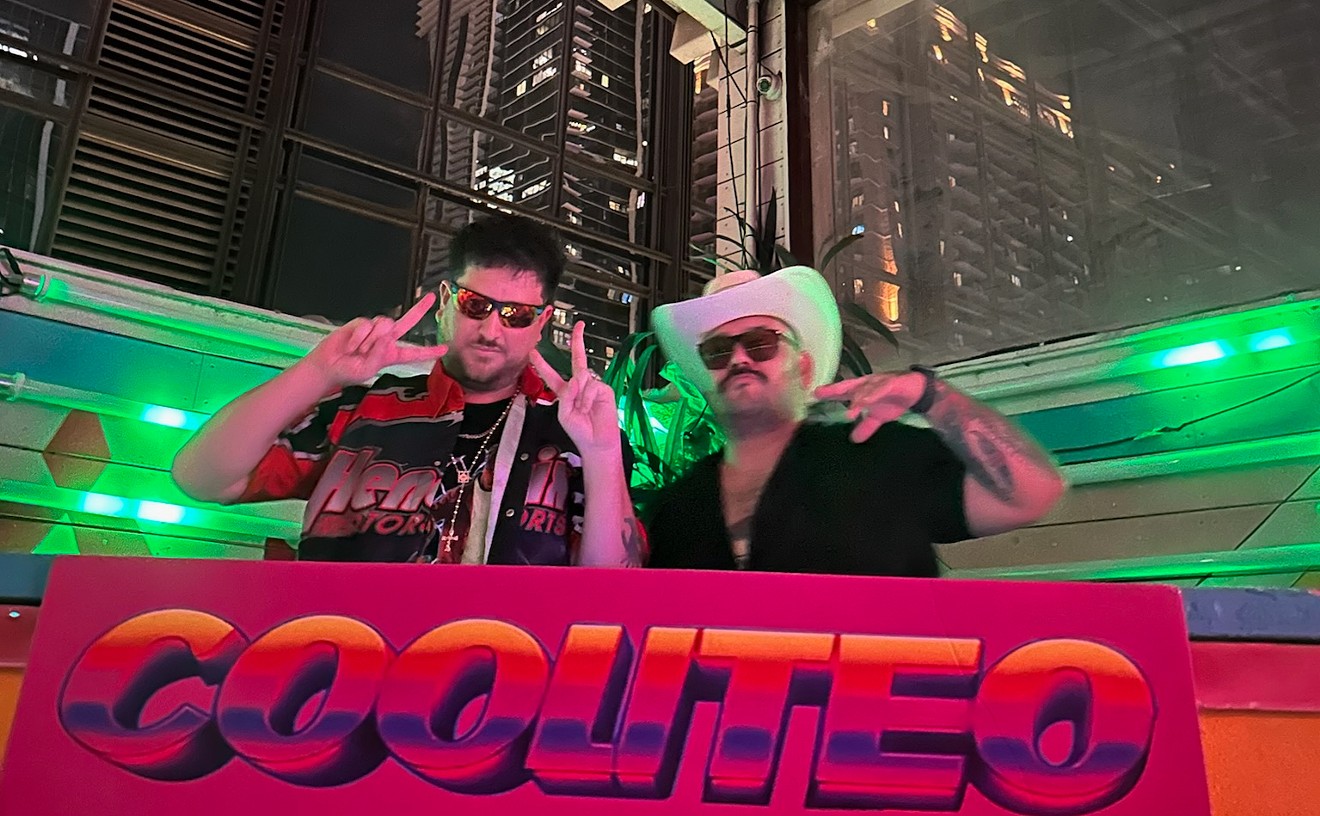“God almighty, here I am/Am I where I’m meant to be?”
Kris Kristofferson sang that deeply vulnerable line more than a decade ago, as part of the title track to his 2013 album Feeling Mortal. The singer-songwriter’s penultimate studio album was the last installment of a loose triptych, preoccupied with the passage of time and the finality of life, which he’d begun in 2006 with This Old Road.
The weariness in his then-77-year-old voice is evident. Even more plain is the unfussy directness with which he plays and sings. No one, least of all the man himself, would have mistaken Kristofferson’s style for that of a crooner, but the simple, often rough affect of his singing only served to draw your attention that much more to what he had to say.
His was a genuine authenticity, a redundant description essential these days only because the world brims over with those indulging in performative authenticity.
Kris Kristofferson was himself: unwavering, unswerving and unique.
Kristofferson died Saturday at the age of 88, according to multiple reports, surrounded by his family on the island of Maui in Hawaii, his long-time home. He is survived by his wife, Lisa; their sons Jesse, Jody, Johnny and Blake; their daughter, Kelly Marie; daughters Tracy and Casey and son Kris from prior marriages, and seven grandchildren.
“It is with a heavy heart that we share the news our husband/father/grandfather, Kris Kristofferson, passed away peacefully on Saturday, September 28 at home,” the family said in a statement. “We’re all so blessed for our time with him. Thank you for loving him all these many years, and when you see a rainbow, know he’s smiling down at us all.”
Although Kristofferson had retreated from public life in recent years, retiring altogether in 2021, in part due to a diagnosis of Lyme disease, which affected his memory, the long shadow of his influence never waned. (His last high-profile public appearance came in April 2023, when he made an emotional appearance at Willie Nelson’s 90th birthday concert at the Hollywood Bowl.)
So much about his life was remarkable, not least of which being that, in whatever mode he chose — musician, actor, soldier, scholar — Kris Kristofferson was never less than fully himself. The iconoclast moved through multiple spheres of expression with a serene self-confidence that was truly singular.
A Brownsville-born, California-raised man of letters — he studied English literature at Oxford — Kristofferson was an acclaimed boxer in high school, before joining the Army in 1960. He would eventually divorce his first wife, decamp for Nashville and work, for a time, as a janitor at Columbia Studios, while scraping together songs.
Those songs were the catalyst for his extraordinary run in the 1970s, which unfolded on the charts and on screen. Just consider his first few albums alone: Help Me Make It Through the Night, Sunday Morning Comin’ Down, Me and Bobby McGee, Lovin’ Her Was Easier (Than Anything I’ll Ever Do Again).
Any single one of those songs most artists would kill to write once, but Kristofferson struck a motherlode seemingly as a matter of course.
As Kristofferson’s musical career was taking hold, so was his acting career. The rangy, ruggedly handsome Kristofferson appeared in some of the decade’s landmark works: Sam Peckinpah’s Pat Garrett and Billy the Kid; Martin Scorsese’s Alice Doesn’t Live Here Anymore; Frank Pierson’s A Star Is Born. He continued to make his mark in film well into his later years, through roles in comic book action thrillers (the Blade trilogy) and intimate dramas (Lone Star; A Soldier’s Daughter Never Cries) alike.
His quiet charisma as an actor drew viewers in as deftly as his songs. Often, Kristofferson didn’t need to do much more than stand there to rivet your attention. He exuded a calm, assertive masculinity, a touch of live-wire rascal and a dash of sorrowful depth. What you saw, simply, what was you got.
Kristofferson would amble back and forth between the artforms over the half-century of his career, earning a handful of Grammys in the process, critical praise, an undying legion of fans and acolytes — and a reputation for having an admirably low tolerance for any bullshit.
Such a feat in an industry built upon vanity and façade is impressive. To be truly, authentically yourself is a daunting proposition. To do so as any sort of creative person is tantamount to a high-wire walk with no net. Step wrong, and it’s a long way down. But, if such realities ever intruded upon Kristofferson, it wasn’t apparent from the outside.
From all available evidence, Kristofferson’s final North Texas concert appearance was in Aug. 2017 at the then-Verizon Theatre. My own final encounter with him in concert had come a year prior, during a 2016 performance at Fort Worth’s Bass Performance Hall, where he was backed by the Texas Gentlemen.
Then 80 years old, Kristofferson’s voice was thick and fragile (nor was he helped by an onslaught of seasonal allergies), but he still found the core truth of every song he sang that night. The band of musicians behind him — most of whom were young enough to be his grandchildren — provided sturdy accompaniment, the familiar melodies of beloved songs written decades earlier ringing out in the darkness.
Standing tall at center stage, his guitar firmly in his hands, the regal Kristofferson looked as he sounded: as one of the finest artists the state of Texas ever produced, a man who was exactly where he was meant to be.

Audio By Carbonatix
[
{
"name": "Air - MediumRectangle - Inline Content - Mobile Display Size",
"component": "18855504",
"insertPoint": "2",
"requiredCountToDisplay": "2",
"watchElement": ".fdn-content-body",
"astAdList": [
{
"adType": "rectangle",
"displayTargets": "mobile"
}
]
},{
"name": "Editor Picks",
"component": "17105533",
"insertPoint": "4",
"requiredCountToDisplay": "1",
"watchElement": ".fdn-content-body",
"astAdList": [
{
"adType": "rectangleLeft",
"displayTargets": "desktop|tablet"
},{
"adType": "rectangleRight",
"displayTargets": "desktop|tablet|mobile"
}
]
},{
"name": "Inline Links",
"component": "18349797",
"insertPoint": "8th",
"startingPoint": 8,
"requiredCountToDisplay": "7",
"maxInsertions": 25
},{
"name": "Air - MediumRectangle - Combo - Inline Content",
"component": "17105532",
"insertPoint": "8th",
"startingPoint": 8,
"requiredCountToDisplay": "7",
"maxInsertions": 25,
"watchElement": ".fdn-content-body",
"astAdList": [
{
"adType": "rectangleLeft",
"displayTargets": "desktop|tablet"
},{
"adType": "rectangleRight",
"displayTargets": "desktop|tablet|mobile"
}
]
},{
"name": "Inline Links",
"component": "18349797",
"insertPoint": "8th",
"startingPoint": 12,
"requiredCountToDisplay": "11",
"maxInsertions": 25
},{
"name": "Air - Leaderboard Tower - Combo - Inline Content",
"component": "17105535",
"insertPoint": "8th",
"startingPoint": 12,
"requiredCountToDisplay": "11",
"maxInsertions": 25,
"watchElement": ".fdn-content-body",
"astAdList": [
{
"adType": "leaderboardInlineContent",
"displayTargets": "desktop|tablet"
},{
"adType": "tower",
"displayTargets": "mobile"
}
]
}
]












